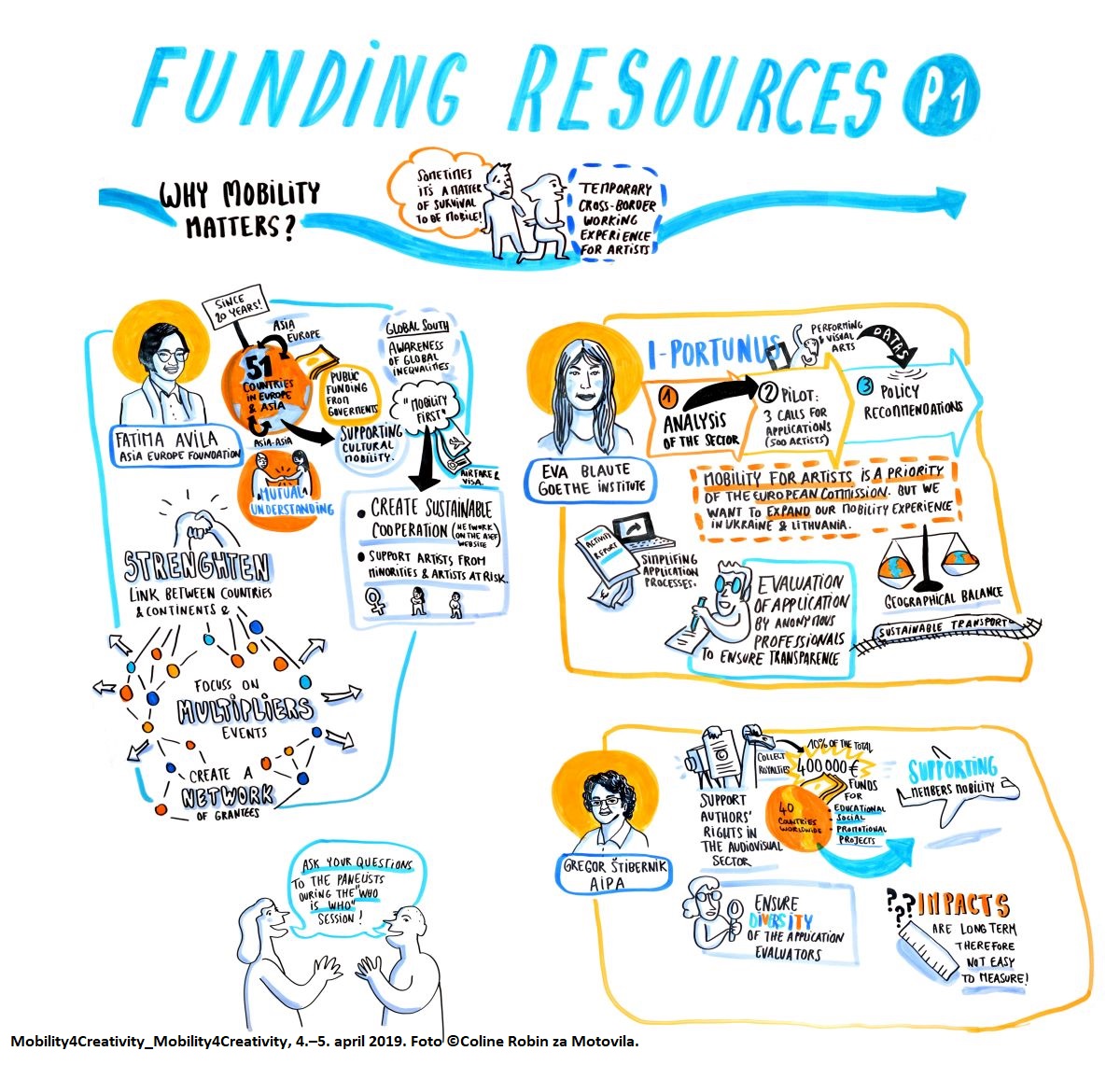
In the panel titled Funding Resources, Mateja Lazar (Motovila) and Dušan Dovč (SCCA), invited panellists to discuss their (fairly recently initiated) funding schemes and agendas behind supporting international mobility in the CSS. Mateja first made it clear that for the purposes of the conference, they are using the definition of mobility as: Any temporary cross-border movement of artists and other cultural professionals
If you’re based in Europe and have partners in Asia or wish to travel there for a conference, training or even residency (or vice versa), Fatima Avila of Asia-Europe Foundation – ASEF (SG) invited us to check out ASEF’s Mobility First!, which came about in 2017 when the then 20-year-old organisation saw the need to introduce a way to also give funds directly to those travelling between Europe and Asia or within Asia (e.g. to/from any of ASEF’s 51 member countries) as well as to work in pursuit of the UN’s Sustainable Development Goals, especially as concerns reducing inequalities among the global north and the global south. She especially encouraged Slovenian people to apply, as there seems to be a low percentage (or even none, as of 2019) of applications coming from this country.
Eva Blaute, Goethe-Institut Brussels (BE), spoke about i-Portunus, a pilot programme funded by the Creative Europe that aims to eventually hone a viable scheme for Creative Europe by testing a model for funding individual artist travels. Artists working in the performing arts or visual arts will be keen to hear about the first call (deadline 15 May 2019) for stays of 15 to 85 days.
Those working in Slovenia in the AV and film sector were introduced this year to a scheme initiated by new Slovenian legislation that allows the AV collecting society AIPA, k.o. (SI) to reallocate a percentage of the royalties collected from worldwide use of AV works to support the social, cultural and educational activities for its members residing in Slovenia. Gregor Štibernik, told us that AIPA has worked for several years to bring to Slovenia a model already long practised in other countries.
We see that every country has different policies, practices and opportunities related to mobility. Marie Le Sourd, shared (by audio recording, see below) a way to stay informed: the cultural mobility information network On the Move – OTM (BE) provides resources for people looking for mobility funding in their own country or others. Although not a funding body, it works closely with its network members to disseminate information about opportunities and aspects. Trends? Increasingly, they see mobility is not only considered as a practice for artists – artistic development, collaboration – seeing mobility as a concept, artists and cultural professionals are aware that their practices are related to many factors.
Panellists warned of the importance of evaluation and analysis of the results of such schemes to make sure that they’re balanced geographically, across sectors, generations and genders, etc. Fatima says that the ASEF’s funding models can be a bit more flexible, because they run their own initiatives, although they are an intergovernmental institution, they serve a (social-)political mission but are not tied strictly to one national or multi-national agenda. Most models rely in some way on government-level policies, which can be seen as both empowering, because they provide opportunities, but also perhaps limited or biased, because they can greatly impact who travels where and for what purpose, often leaving other groups off the agenda.
The funding schemes presented all aim for simplified applications, transparency and low-administration to create easy and accessible programmes. Good news, which also helps keep our baggage light when we travel!
Back to FULL REPORT by Jana Renée Wilcoxen for Motovila, Ljubljana 2019.
CC Attribution-NonCommercial 4.0 International (CC BY-NC 4.0).
Further information about the #Mobility4Creativity conference.
The event was organized by the Motovila Institute in cooperation with Arts and Theatre Institute / CED CZ, DutchCulture / CED NL, Centro de Informacão Europa Criativa / CED PT, CED Ireland – MEDIA Office Dublin, Ministry of Culture of the Republic of Croatia / CED HR, Federal Chancellery of Austria, Arts and Culture / CED AT, SCCA–Ljubljana and CMEPIUS.

